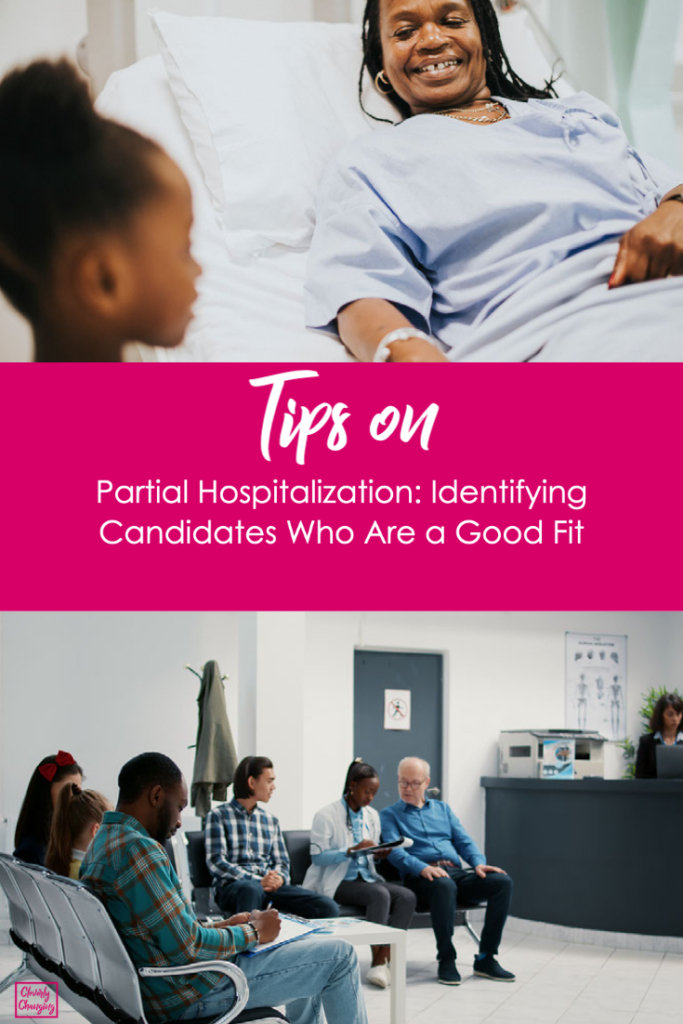The term partial hospitalization was completely new to me at first. After doing a little research, I learned that Partial hospitalization programs (PHPs) have emerged as an essential component of mental health care, providing an intermediate level of support between inpatient and outpatient care. These structured and intensive treatment programs offer a range of therapeutic services to individuals struggling with mental health disorders. However, not everyone is suited for partial hospitalization, as it requires a specific set of characteristics and circumstances. What factors make candidates a good fit for partial hospitalization? What are the benefits of this treatment modality.
Severity of Mental Health Condition
One of the primary factors that determine eligibility for a partial hospitalization program is the severity of the individual’s mental health condition. PHPs are designed for individuals who require more support than traditional outpatient care can provide but do not require full hospitalization. Suitable candidates often have moderate to severe mental health conditions, such as major depressive disorder, bipolar disorder, anxiety disorders, and post-traumatic stress disorder.
Safety Concerns
Candidates for partial hospitalization should not pose an immediate threat to themselves or others. While PHPs offer a structured and therapeutic environment, they may not be equipped to handle individuals who require constant monitoring or intensive care due to severe suicidal ideation or violent tendencies. For such cases, inpatient hospitalization would be a more appropriate option.

Stability in Daily Living
Partial hospitalization requires a level of stability in a candidate’s daily living. Individuals should have a stable living situation, access to transportation, and support systems outside of the program. Candidates who have supportive family members or friends, or those living in a stable home environment, are better suited for PHPs as they can continue to receive support even outside the program hours.
Willingness to Participate in Treatment
A crucial aspect of partial hospitalization is the active participation of the individual in their treatment. Candidates must be motivated and committed to engaging in therapeutic activities, group sessions, and individual counseling. Their willingness to collaborate with mental health professionals and follow treatment plans is essential for successful outcomes.
Ability to Benefit from Group Therapy
Group therapy is a central component of partial hospitalization programs. Candidates must be able to benefit from and engage constructively in group settings. Those who find group dynamics difficult or are uncomfortable sharing their thoughts and emotions in a group setting may not derive the full benefits of PHPs.
Support for Transitioning Between Care Levels
Partial hospitalization often serves as a transitional step between inpatient care and traditional outpatient therapy. Suitable candidates should be capable of adapting to changes in their level of care and be open to transitioning from one treatment modality to another as their mental health needs evolve.
Co-Occurring Disorders
Partial hospitalization can be an effective option for individuals with co-occurring disorders, such as substance use disorders and mental health conditions. Candidates who need comprehensive care that addresses both issues simultaneously may find PHPs beneficial.
Benefits of Partial Hospitalization
What benefits come with partial hospitalization? Why should a person consider this option? The following are a few benefits one might see when they select partial hospitalization.
- PHPs offer an intensive level of care, providing multiple therapeutic services throughout the day. This ensures that candidates receive comprehensive treatment tailored to their specific needs.
- Partial hospitalization programs typically have more flexible schedules than inpatient care, allowing candidates to maintain their daily routines and gradually transition back into everyday life.
- Candidates benefit from a supportive and nurturing environment within PHPs, helping them feel less isolated and enhancing their sense of belonging.
Partial hospitalization is a valuable treatment option for individuals with moderate to severe mental health conditions. They receive more support than outpatient care can provide. By identifying candidates who are a good fit for PHPs, mental health professionals can effectively utilize this treatment modality to improve individuals’ well-being and promote their journey to recovery.

